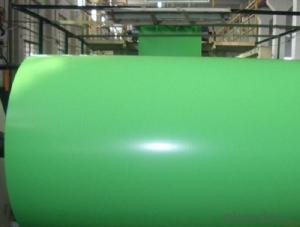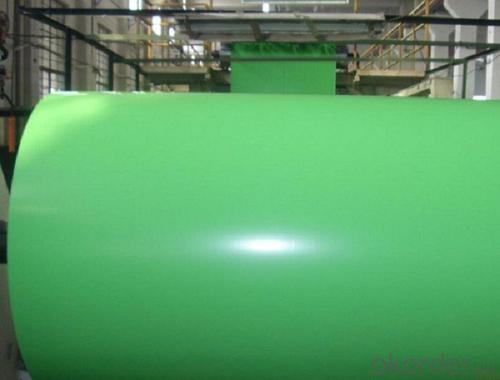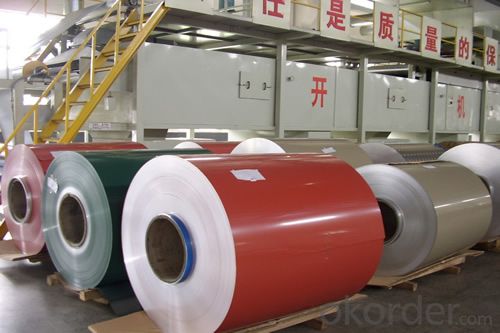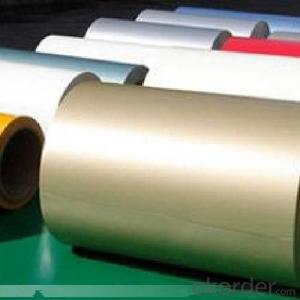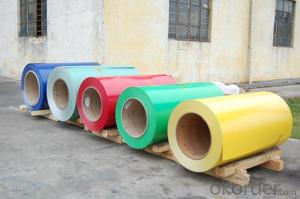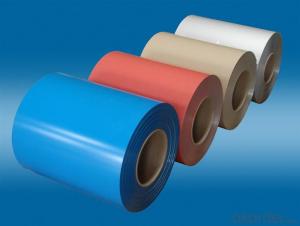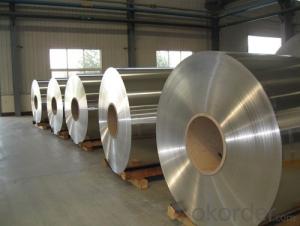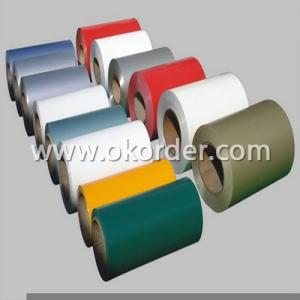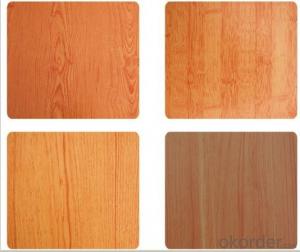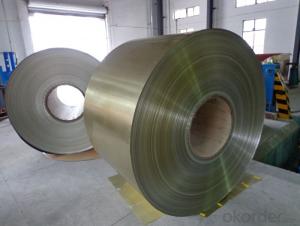2x.040 Aluminum Coil Stock - PP Caps Color Coated Aluminium Coils New Year Promotion
- Loading Port:
- Shanghai
- Payment Terms:
- TT OR LC
- Min Order Qty:
- 2.5
- Supply Capability:
- 5000 m.t./month
OKorder Service Pledge
OKorder Financial Service
You Might Also Like
Specification
PP Caps Color Coated Aluminium Coils New Year Promotion
l Product Information
1. Type:Aluminum Coil
2. Alloy: 8011
3. Temper: H24/14
4. Thickness: 0.21mm
5. Width: 100-2500mm or as your request
6. Length: produce as your request
7. Weight: produce as your request
8. Color: One side with colored lacquer and the other side with transparent lacquer or both sides with transparent lacquer.
9. Application: The coated aluminum coil with variety colors widely used on the production of caps, such as wine bottle cap, medicinal liquid lids and cosmetic caps.
10. Surfure: Smooth, clean, be free of scratch and corrosion
l Packaging & Delivery
Packaging detail: Standard seaworthy exporting carton, Wooden pallets, waterproof paper and plastic coverage or as customer's requirements
Delivery detail: about 25 days from received oiginal L/C or advance payments
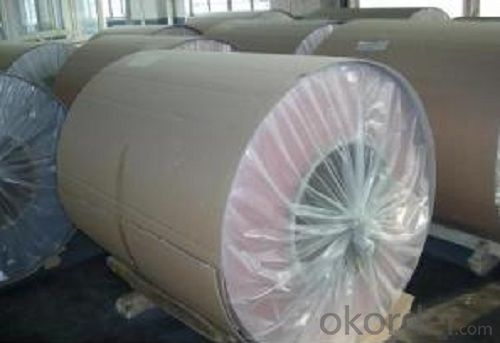
l Company Profile
CNBM International Corporation, China National Building Materials (Group) Corporation, is one of the largest companies in China building material & equipment industry, with 42,800 employees and sales in 2005 of US Dollar 4.395 billion. In 2006, China National Building Material Company Limited was listed on Hong Kong Stock Market with the stock code as 3323. |
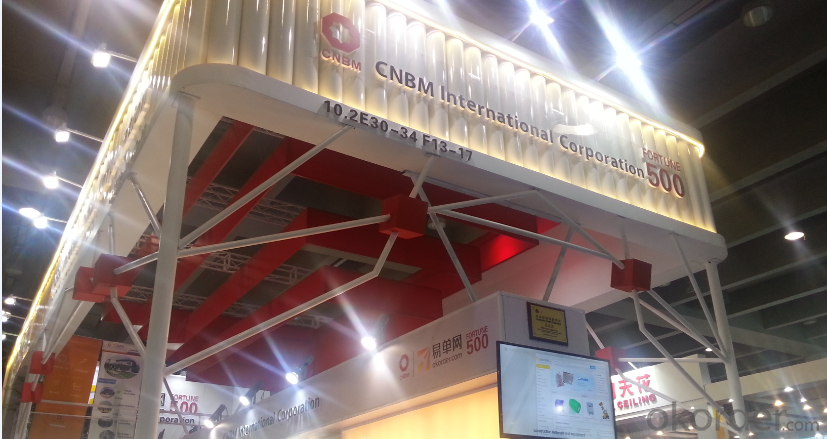
l CNBM World Wide
l Product Images
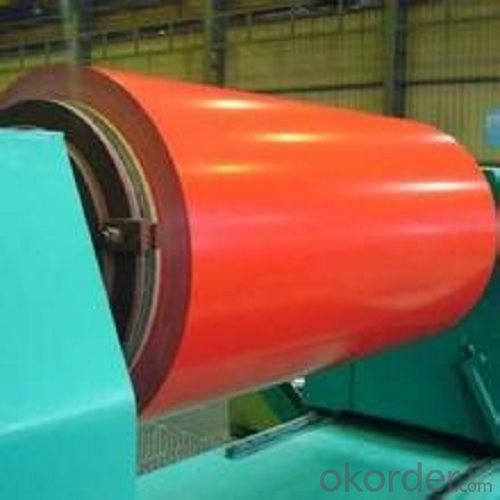
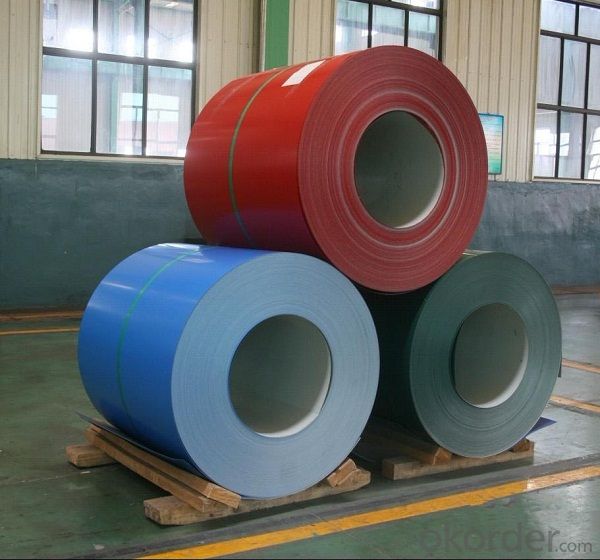
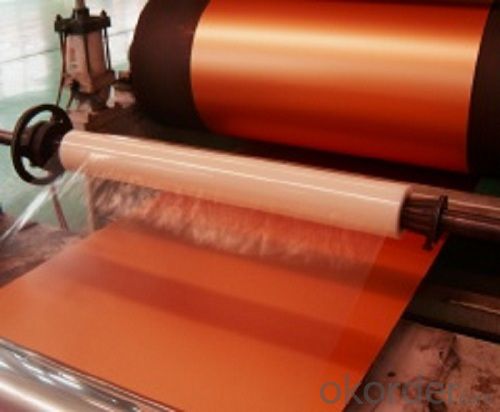
l Certificates
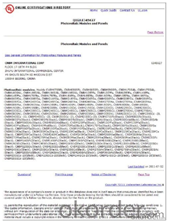
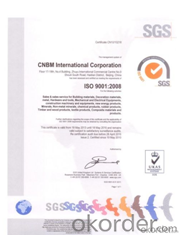
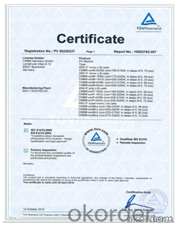
l FAQ
Q: Do you provide free samples?
A: Yes, free samples will be sent to you on freight at destination.
Q: Can I get your latest products catalogue?
A: Yes, it will be sent to you in no time.
Q: What is the MOQ?
A: 2.5 tons
Q: What are your payment terms?
A: We accept L/C, T/T
- Q: Why there is arc panel after aluminum coil straightening?
- The aluminum coil can only become flat and straight after being planished on stretch bender.
- Q: What are the common applications of aluminum coils?
- Aluminum coils are widely used in various industries due to their unique properties and versatility. Some of the common applications of aluminum coils include: 1. HVAC Systems: Aluminum coils are extensively used in air conditioning and refrigeration systems, where they play a crucial role in heat transfer. The lightweight and excellent thermal conductivity of aluminum make it an ideal choice for these applications. 2. Transportation Industry: Aluminum coils are commonly used in the automotive and aerospace industries. They are used to manufacture radiators, condensers, evaporators, and other heat exchange components in vehicles. The high strength-to-weight ratio of aluminum helps in reducing the overall weight of the vehicle, leading to improved fuel efficiency. 3. Construction Sector: Aluminum coils find extensive use in the construction industry. They are used in the production of gutters, downspouts, roofing, and cladding materials. Aluminum's corrosion resistance and durability make it a preferred choice for outdoor applications that require long-lasting performance. 4. Electrical Industry: Aluminum coils are used in the production of cables and wires due to their excellent electrical conductivity. They also find use in transformers and power distribution systems. 5. Packaging Industry: Aluminum coils are widely used in the packaging industry. They are used to produce various types of packaging materials, such as cans, foils, and containers. Aluminum's ability to form a barrier against moisture, light, and oxygen makes it ideal for preserving the freshness and quality of food and beverages. 6. Marine Applications: Aluminum coils are used in the marine industry for manufacturing boats, ships, and other offshore structures. Aluminum's resistance to corrosion in saltwater environments makes it a suitable choice for these applications. 7. Industrial Equipment: Aluminum coils are utilized in various industrial equipment, including heat exchangers, condensers, and evaporators. Their thermal conductivity and corrosion resistance properties make them suitable for efficient heat transfer. In summary, aluminum coils have a wide range of applications across multiple industries, including HVAC, transportation, construction, electrical, packaging, marine, and industrial equipment. Their lightweight, excellent thermal conductivity, corrosion resistance, and durability make them a preferred choice for various applications.
- Q: Is it possible to use a soldering iron to solder a copper coil in place of an aluminum coil?
- <p>Yes, you can use a soldering iron to solder a copper coil instead of an aluminum coil. Copper has a higher melting point than aluminum, so you may need to use a soldering iron with a higher temperature setting or a higher melting point solder. Ensure that the solder you use is compatible with copper, as some solders are specifically designed for aluminum. When soldering copper, it's also important to clean the surface thoroughly to remove any oxidation, as this can affect the solder joint's quality.</p>
- Q: Is it possible to construct a portable speaker or speaker docking station using aluminum coils?
- <p>Yes, you can use aluminum coils in the construction of a portable speaker or speaker docking station, but they are not the primary component. Aluminum coils can be used in the speaker's electromagnetic parts, such as in the voice coil of the speaker driver or in the transformer of a docking station. However, the main components of a speaker include a diaphragm, voice coil, magnet, and enclosure, while a docking station would require a connector for the device, an amplifier, and possibly additional circuitry. The aluminum coil's role is to facilitate the magnetic field interaction with the voice coil, which converts electrical signals into sound waves. It's essential to consider the entire design and other necessary components when building such devices.</p>
- Q: How do aluminum coils contribute to energy efficiency?
- Aluminum coils contribute to energy efficiency in several ways. Firstly, aluminum is a highly conductive metal, which means it can efficiently transfer heat. When used in HVAC systems, aluminum coils help in the efficient transfer of heat between the air and the refrigerant, allowing for quicker cooling or heating of the space. Secondly, aluminum coils are lightweight and have a high strength-to-weight ratio. This characteristic makes them easier to handle and install, reducing the overall weight of the HVAC system. The reduced weight not only makes transportation and installation more efficient but also reduces the load on the building structure. Furthermore, aluminum coils are durable and corrosion-resistant. This longevity ensures that the HVAC system operates smoothly over an extended period, minimizing the need for frequent repairs or replacements. As a result, less energy is wasted on maintaining or replacing components, leading to better energy efficiency. Additionally, aluminum is a recyclable material, and using aluminum coils in HVAC systems promotes sustainability. The recycling process for aluminum requires significantly less energy compared to producing new aluminum, thus reducing the overall carbon footprint and energy consumption. Lastly, aluminum coils are often manufactured with enhanced fin designs and advanced technology, such as microchannel coils. These innovations increase the surface area of the coil, improving heat transfer efficiency and reducing the energy required for cooling or heating. Overall, aluminum coils contribute to energy efficiency by facilitating efficient heat transfer, reducing system weight, promoting durability, supporting sustainability through recycling, and incorporating advanced technology to enhance heat exchange.
- Q: Are aluminum coils suitable for electrical conductors?
- Aluminum coils, indeed, prove to be suitable for electrical conductors. Due to its remarkable electrical conductivity, aluminum has become a widely utilized material in the electrical industry. It possesses approximately 61% conductivity in comparison to copper, the utmost commonly employed metal for electrical conductors. Lightweight, cost-effective, and possessing good thermal conductivity, aluminum coils have become a favored selection for a range of electrical applications. Nonetheless, it is noteworthy that aluminum has a lower tensile strength than copper, thus potentially demanding a larger cross-sectional area to attain an equivalent level of current carrying capacity. Furthermore, to prevent oxidation and guarantee efficient electrical conductivity in aluminum coils, it is imperative to employ proper insulation and connectors.
- Q: I was at an art festival and saw one of the most unique displays ever. The artist had painted abstract art on a piece of aluminum (or some type of aluminum type sheeting) I, being a novice artist for many years, was very intrigued and would LOVE to learn more about it. I've done searches on the internet, to no avail. Anyone have any ideas?
- I've known a couple of people who do this, you might try a search on Floating Panel. You could try to search out things on an artist called Gary Hume, as I know that his earlier paintings, certainly the ones for which he's known, were executed on aluminium. From what I remember of people doing this (some one on my MA made paintings on aluminium) the trick is in the priming, it being a non-pours surface. You need to rough the ground considerably and prime quite thickly. You also need to baton on the back, this will allow you to attach to the wall without ruining the face of the support, and prevent the possibility of warping. What looks great is if you recess the batons from the edge of the support, so that when against the wall they cannot be seen, this gives the appearance of hovering, and shows the thinness of your support. Another reason you might not be getting too many hits on your searches is the spelling, while not incorrect you might find art suppliers using the English, rather than the American spelling; aluminium rather than aluminum. I know that sounds petty but it might make a difference. The only other thing I know, while finding it a great surface to work on, smooth, bright, the artist I know also found it very expensive.
- Q: Are aluminum coils compatible with other materials?
- Yes, aluminum coils are compatible with other materials. Aluminum is a versatile and widely used material that can be easily integrated with various other materials in different applications. For example, aluminum coils can be used in conjunction with copper tubing in air conditioning and refrigeration systems to enhance heat transfer efficiency. Additionally, aluminum coils can be coated or laminated with other materials such as polymers or paints to provide additional protection against corrosion, improve aesthetics, or enhance specific performance characteristics. Therefore, aluminum coils offer compatibility with a range of materials, making them suitable for diverse applications in industries such as construction, automotive, aerospace, and more.
- Q: what is the hardness number of aluminium.....? what is the hardness number of aluminium-Sic composite material...?
- I don't believe that Aluminum (US spelling)/ Aluminium (UK spelling) has a Mohs Hardness rating. The Hardness of a material, as measured by the Mohs Hardness scale, is a criterion of its resistance to crushing. [Perry's Chemical Engineering Handbook]. Since aluminum is a metal, and would deform under a crushing-type stress, rather than shatter, it would not have a Mohs Hardness rating. Perhaps you meant **aluminA**, rather than aluminum. Alumina (Al2O3) has a Modified Mohs Hardness of 12. Silicon Carbide (carborundum) has a Modified Mohs Hardness of 13. There's no value listed for the combination, but it should be pretty hard stuff -- likely in the 12-13 range, but potentially even harder. Hope that helps.
- Q: This is for handling aluminum
- Aluminum as a solid is very safe; although non-nutritious (your body does not require it), its accumulation in tissues is apparently not directly harmful. Individuals who work years of their lives in handling aluminum have no higher incidence of Alzheimer's disease than those that do not. As a powder- particularly very fine powders- aluminum is extremely hazardous with respect to its combustibility, and is used in fireworks (sparklers, for example). When it burns, it is extremely hot, and extinguishing it should not be attempted without training and the correct tools- usually salt or Purple K extinguishing agent. However, it burns so quickly that it will usually be out before attempts can be made.
Send your message to us
2x.040 Aluminum Coil Stock - PP Caps Color Coated Aluminium Coils New Year Promotion
- Loading Port:
- Shanghai
- Payment Terms:
- TT OR LC
- Min Order Qty:
- 2.5
- Supply Capability:
- 5000 m.t./month
OKorder Service Pledge
OKorder Financial Service
Similar products
Hot products
Hot Searches
Related keywords
